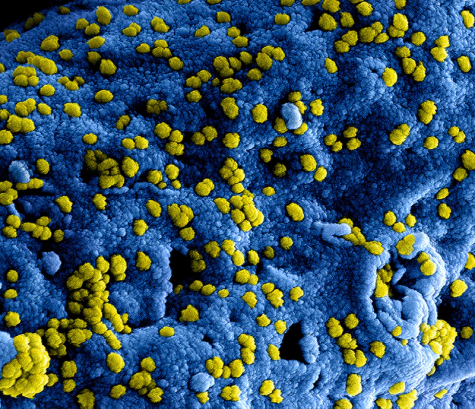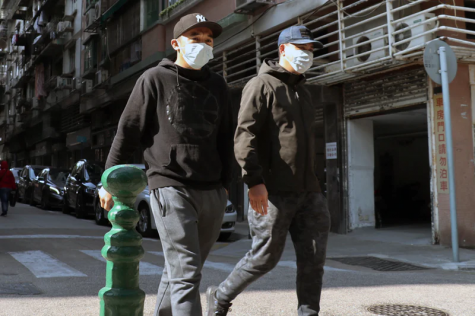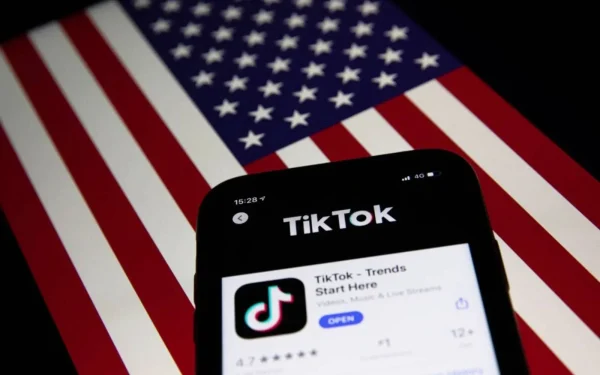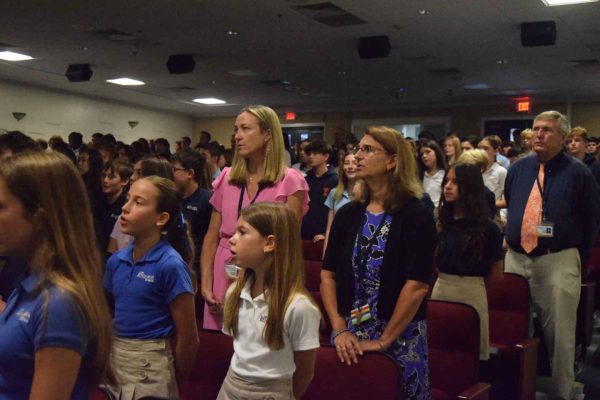Should We Be Worried About the Coronavirus?
Photo courtesy of https://unsplash.com/s/photos/coronavirus
A man walks in Macau, China, wearing a mask to protect him from the virus.
Swift. Painful. Deadly. The Wuhan Coronavirus has caused worldwide panic and has now spread to the United States. The virus has caused over 1,800 deaths and has left approximately 73,000 people infected. An fifteenth case in the U.S. was confirmed on February 13. The questions that everybody is trying to answer are: how many more will be infected and is there a cure on the horizon?

This is what Coronavirus looks like when it is in your body.
China, where the virus originated, is trying to stem the tide of infection. According to the BBC, Chinese President Xi Jinping is one of many who is deeply concerned. As one of the world’s most populated countries, China contains 1.3 billion people, which means the risk of infection could be catastrophic.
The disease is believed to have originated at or near a local market in Wuhan, China. At this market, which has since been shut down, people in Wuhan were able to purchase not just ordinary, everyday foods, but also animal meat that came from snakes and bats. According to the BBC, some scientists believe this is where the virus began as shoppers purchased and consumed the contaminated meat. Then, the virus began to spread from person to person via airborne pathogens. The virus really began to pick up as the Chinese Lunar New Year began in late January, which meant hundreds of millions of Chinese people began traveling across the globe. This not only put more people at risk of the virus, but it also increased the risk of it spreading globally.

In Macau, people have to wear masks while walking around to protect them from Coronavirus.
The Wuhan Coronavirus (“corona” means “crown,” and the virus’ cells are covered with crown-like protrusions) has a vast variety of symptoms. Some of these include a dry cough, a fever, and in a matter of days, breathing becomes difficult. Respiratory infection is one of the major problems that occur when one becomes infected. Pneumonia, which kills up to 30% of its victims, can develop when the virus is contracted. Despite these symptoms and results of the disease, at the moment, the death rate is less than five percent, and of those who have died, most are older people who had medical problems before they even contracted the disease. Healthwise, the chance of even contracting the disease in the first place seems to be quite low, although it is something of which people should be vigilant.
TBS itself had a recent scare as 30 students and three teachers were recently forced to stay home after they attended the Yale Model United Nations Conference. Interim Head of School Mr. Thomas Reid sent an email to faculty and parents that stated, “Yale alerted attendees that a student who had traveled with a small group from China had fallen ill. The student, who was quarantined, tested positive for influenza. Per the Centers for Disease Control, the student was also tested for 2019-nCoV, also known as the [Wuhan] Coronavirus.”
The test was negative, and so all of the students and teachers returned to school after three days. However, the incident was the top news story on WPTV News, West Palm’s NBC affiliate.
As a result, on Friday, January 31, Lake Worth Christian canceled its middle school girls’ soccer game against the Buccaneers because the school was afraid of players perhaps contracting the coronavirus from Benjamin players. This happened even though the Yale Model UN Conference was only open to high schoolers and no TBS students became infected from the trip.
“A bunch of teams didn’t want to play us anymore because they thought everyone in the school was infected, and they didn’t want to risk their players getting infected,” said eighth-grade soccer player Chloe Fong.
The risk of contamination in the U.S. right now is quite low. For every person that has the disease, they spread it to approximately 2.5 more people that they come in contact with, making it a slow but potentially contagious virus.
Despite the 11 confirmed cases, the virus is not a health scare to the US as it is not rapidly spreading throughout the nation. The best things Americans can do are wash their hands and stay away from those who are sick.
The nurses as TBS sent an email to parents on January 15 with the following guidelines for preventing the flu and keeping families healthy: “wash hands frequently, do not touch eyes, nose or mouth, cover mouth and nose when sneezing or coughing, use a paper tissue, throw it away and then wash hands, [and] avoid close contact with people who are sick.”
While efforts to contain the virus have been made, there has not been much success. Because of the virus, China has shut down entire cities whose populations are more than 10 million people. However, members of the TBS community are not panicking.
“The more I read, the more I study the situation, China is really doing amazing things to contain the coronavirus,” said Head of Middle School Mr. Charles hagy.
“The technology around in 2020 is so good that I think it will all be over in two months and then no one will even remember [the virus] in five years,” said eighth grader Philip Harris.
Fellow eighth grader Jack Guagliano is not scared, either. “The United States is doing a great job containing the virus, and I do not think it will become an epidemic in the United States,” he said.
Let’s hope he’s right.





